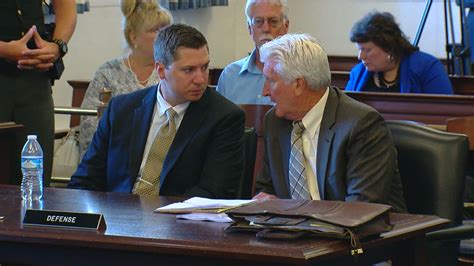
Lawyers across various legal fields have shared the pivotal moments they realized a client’s case was unwinnable, often marked by blatant lies, self-incriminating actions, or a complete disregard for legal advice. These confessions, revealed anonymously, offer a glimpse into the frustrating and sometimes surreal realities faced by legal professionals.
An online discussion thread prompted lawyers to divulge the instances when they knew their client’s defense was futile. The anecdotes range from criminal cases to civil disputes, painting a picture of clients undermining their own legal representation through dishonesty and poor judgment. “I knew we were cooked when my client, on trial for armed robbery, winked at the jury after the prosecutor showed the security footage of him robbing the place,” one lawyer shared, encapsulating the often-unbelievable scenarios they encounter.
One recurring theme among the confessions is client dishonesty. Attorneys recounted instances where clients swore to alibis that quickly unraveled under scrutiny or denied evidence that was irrefutably presented. “My client swore up and down he’d never met the plaintiff. Then the plaintiff produced a photo of them on vacation together…last year,” another lawyer admitted. Such instances not only jeopardize the case but also erode the attorney-client relationship, making effective representation nearly impossible.
Another attorney recounted representing a client accused of drunk driving. Despite repeated warnings, the client insisted on testifying. “He took the stand and, within five minutes, admitted to having ‘a few’ drinks before driving…after being told repeatedly not to mention alcohol,” the lawyer wrote. The self-incriminating testimony effectively destroyed any chance of acquittal.
The stories highlight the ethical and professional challenges lawyers face when clients act against their own best interests. Attorneys are bound by a duty to provide zealous representation, but that duty is complicated when clients are untruthful or refuse to follow legal advice. The confessions underscore the importance of client communication and the need for lawyers to manage client expectations realistically.
The Weight of a Hopeless Case
Representing a client when the case appears doomed from the outset can place a significant emotional and professional burden on an attorney. Lawyers are trained to advocate fiercely for their clients, regardless of the perceived odds. However, when faced with insurmountable evidence, blatant dishonesty, or self-destructive behavior from a client, the attorney’s role shifts to damage control and mitigating the consequences.
The shared anecdotes reveal the wide spectrum of situations that can lead to a lawyer’s realization that a case is hopeless. Some involve criminal defendants who commit further offenses while awaiting trial, while others involve civil litigants who destroy crucial evidence. What binds these stories together is the sense of frustration and resignation experienced by the attorneys, who are often left to navigate the fallout from their clients’ actions.
“I had a client in a contract dispute who decided to ‘get even’ with the other party by vandalizing their property…while the case was ongoing,” one lawyer wrote. “Needless to say, that pretty much tanked our chances.”
In such scenarios, attorneys often face a difficult decision: whether to continue representing the client despite the hopelessness of the situation or to withdraw from the case. Withdrawal can be ethically permissible, or even required, when a client’s actions render effective representation impossible or when the client is using the attorney’s services to perpetrate a fraud. However, withdrawing from a case can also leave the client in a precarious position, particularly if the trial is imminent.
Ethical Considerations and Professional Responsibilities
The lawyers’ confessions touch upon several key ethical considerations that govern the legal profession. Attorneys are bound by a duty of confidentiality, which prevents them from disclosing information about their clients’ cases, even when that information is detrimental to their clients’ interests. This duty is not absolute, however. There are exceptions, such as when disclosure is necessary to prevent a client from committing a crime or fraud.
The duty of candor to the court is another important ethical obligation. Attorneys are prohibited from knowingly making false statements of fact or law to a judge or jury. They also have a duty to disclose adverse legal authority that is directly controlling and has not been disclosed by opposing counsel.
When a client is dishonest or acts against their own interests, the attorney must carefully balance their duty of confidentiality with their duty of candor to the court. In some cases, this may require the attorney to confront the client directly about their behavior and to advise them to take corrective action. If the client refuses, the attorney may have no choice but to withdraw from the case.
The stories shared by the lawyers also raise questions about the role of client counseling. Attorneys are not simply legal technicians; they are also advisors who are expected to provide their clients with sound judgment and guidance. This includes advising clients about the potential consequences of their actions and helping them to make informed decisions about their cases.
In some of the anecdotes, it is clear that the clients ignored the advice of their attorneys, often to their own detriment. While attorneys cannot control their clients’ behavior, they can take steps to ensure that their clients understand the risks involved and that they are making decisions that are in their best interests.
The Psychological Toll on Legal Professionals
Dealing with hopeless cases and difficult clients can take a significant psychological toll on legal professionals. The stress of representing a client who is actively undermining their own defense, coupled with the pressure to maintain ethical standards, can lead to burnout, anxiety, and depression.
Many attorneys struggle with feelings of guilt or inadequacy when they are unable to achieve a favorable outcome for their clients. They may question their own skills and abilities, even when the outcome is largely beyond their control.
The adversarial nature of the legal system can also contribute to the psychological stress experienced by attorneys. They are often pitted against opposing counsel, and the stakes can be high, particularly in criminal cases or high-stakes civil litigation.
To cope with these challenges, many attorneys seek support from colleagues, mentors, or therapists. They may also engage in self-care activities, such as exercise, meditation, or spending time with loved ones.
Law firms and bar associations are increasingly recognizing the importance of attorney well-being and are offering programs and resources to help lawyers manage stress and maintain their mental health. These programs may include counseling services, stress management workshops, and peer support groups.
Specific Examples from the Confessions
The lawyers’ confessions offer a wide range of examples of the types of situations that can lead to a lawyer’s realization that a case is hopeless. Some of the most common themes include:
-
Blatant Lies: Clients who lie to their attorneys about key facts in the case make it impossible for the attorney to effectively represent them. For example, a client who denies having a criminal record, only for the record to be revealed during trial, can severely damage their credibility and undermine their defense.
-
Self-Incriminating Actions: Clients who engage in self-incriminating actions, such as committing further crimes while awaiting trial or destroying evidence, can effectively destroy their own case.
-
Ignoring Legal Advice: Clients who ignore the advice of their attorneys, such as by testifying against their advice or refusing to accept a plea bargain, can jeopardize their chances of a favorable outcome.
-
Lack of Remorse: Clients who show a lack of remorse for their actions can alienate judges and juries, making it difficult for the attorney to argue for leniency.
-
Unrealistic Expectations: Clients who have unrealistic expectations about the outcome of their case can be difficult to manage, particularly when the evidence against them is strong.
One lawyer recounted representing a client accused of embezzling funds from his employer. Despite overwhelming evidence of his guilt, the client insisted on going to trial, believing that he could convince the jury that he was innocent. “He truly believed he was a good speaker and could sway the jury,” the lawyer wrote. “He was wrong. Very wrong.”
Another lawyer shared a story about representing a client in a custody dispute. The client, despite being repeatedly warned by the lawyer, continued to post inflammatory and derogatory comments about the other parent on social media. “The judge specifically mentioned the social media posts in his ruling,” the lawyer admitted. “It was clear they had a significant impact on his decision.”
These examples illustrate the importance of client communication, realistic expectation management, and the need for attorneys to be able to identify and address potential red flags early in the representation.
The Role of Experience and Intuition
While legal training and knowledge are essential for effective representation, experience and intuition also play a crucial role in a lawyer’s ability to assess the viability of a case. Experienced attorneys often develop a sense for when a client is being dishonest or when a case is simply unwinnable.
This intuition is based on a combination of factors, including the attorney’s understanding of the law, their experience with similar cases, and their ability to read people. Experienced attorneys can often detect subtle cues that indicate a client is not being truthful or that a case is headed for disaster.
However, it is important for attorneys to avoid relying solely on their intuition. They must also base their assessments on objective evidence and a thorough understanding of the facts and the law.
The Impact on Public Perception of Lawyers
The lawyers’ confessions, while providing an insider’s perspective on the challenges of legal representation, can also contribute to negative stereotypes about lawyers. The stories of dishonest and difficult clients may reinforce the perception that lawyers are often forced to defend the indefensible.
It is important to remember that the vast majority of lawyers are ethical and dedicated professionals who strive to provide the best possible representation for their clients. The anecdotes shared in the online discussion thread represent a small fraction of the cases handled by lawyers every day.
However, the legal profession must also acknowledge the challenges and ethical dilemmas faced by lawyers, and to provide them with the support and resources they need to navigate these difficult situations.
Conclusion: A Reminder of the Human Element in Law
The lawyers’ confessions offer a raw and honest glimpse into the realities of legal practice, highlighting the challenges, frustrations, and ethical dilemmas that attorneys often face. While the stories may be entertaining, they also serve as a reminder of the human element in law.
Lawyers are not simply legal technicians; they are also counselors, advisors, and advocates who must navigate complex relationships with their clients while upholding the highest ethical standards. The confessions underscore the importance of client communication, realistic expectation management, and the need for lawyers to maintain their own well-being in the face of difficult and demanding situations. The shared experiences highlight the complexities inherent in the attorney-client relationship and the ethical tightrope lawyers often walk.
Frequently Asked Questions (FAQ)
-
What is the main point of the article? The article summarizes instances where lawyers realized a client’s case was hopeless, often due to client dishonesty, self-incriminating actions, or ignoring legal advice, and explores the ethical and professional challenges faced by these attorneys.
-
Why do lawyers share these “hopeless” case stories? Lawyers share these stories, often anonymously, to vent frustrations, share experiences with colleagues who understand, and highlight the difficult realities of their profession, particularly concerning client behavior and its impact on legal outcomes.
-
What are the ethical obligations of a lawyer when a client is clearly lying? Lawyers have a duty of confidentiality to their clients, but also a duty of candor to the court. If a client is lying, the lawyer must first try to persuade the client to correct the falsehood. If the client refuses, the lawyer may be obligated to withdraw from the case, depending on the specific circumstances and the jurisdiction’s ethical rules.
-
Can a lawyer withdraw from a case if they believe it’s hopeless? Yes, a lawyer can withdraw from a case if they believe it is hopeless, but it often requires court approval. Ethical rules typically allow withdrawal if the client’s actions make it unreasonably difficult for the lawyer to carry out their representation effectively, or if the client is using the lawyer’s services to commit a crime or fraud.
-
How does dealing with “hopeless” cases affect lawyers’ mental health? Dealing with hopeless cases can lead to stress, burnout, anxiety, and depression among lawyers. The pressure of representing a client who is undermining their own defense, coupled with ethical obligations, can take a significant psychological toll.









